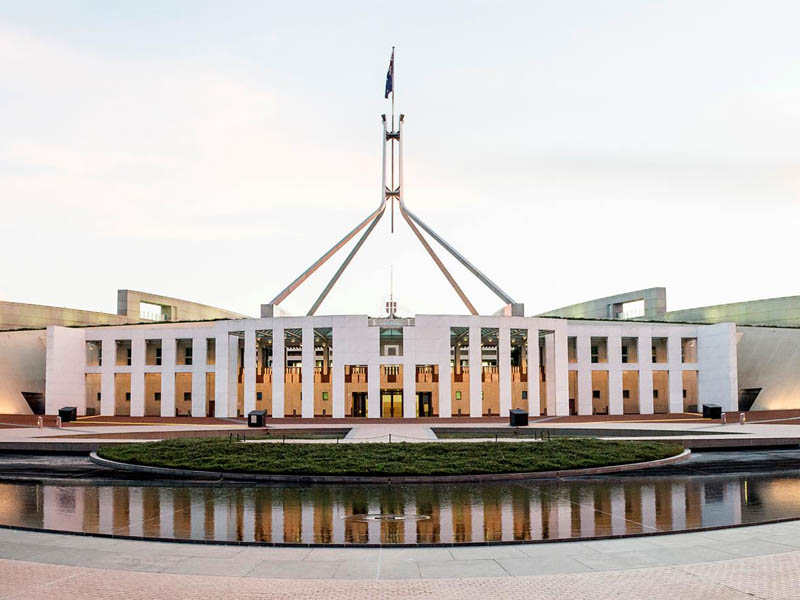New Labor Senator Tony Sheldon has thrown down the gauntlet to both major parties to catch up and better regulate the “unaccountable tech titans”, calling for the introduction of a digital tax on local revenue.
Senator Sheldon, the former national secretary of the Transport Workers’ Union, delivered his first speech as a Labor Senator last Wednesday, focusing on a crackdown on global tech giants and supporting workers in the gig economy.
Governments must do a better job of regulating these big tech players, he said.

“Governments and Parliaments must start leading with effective market design and regulation, rather than chasing with ineffective versions of neither,” Senator Sheldon said in his maiden speech.
“There are now modern, international goliaths in the information age, just as there were international behemoths in the first industrial and global trade ages.”
“I speak of Uber, Amazon, Facebook, Google and their like – unaccountable titans who seek to have the market operate in their self-interest. The regulation of these global tech giants by democratically elected leaders is failing in our economy and our democracy.
“Governments need to catch up and get out in front of regulating these disruptors, and my pledge in this place is that I will do everything in my power to thoughtfully and unapologetically disrupt the disrupters.”
The government should introduce a new digital services tax on the revenue these companies generate in Australia, Senator Sheldon argued. Countries such as France and India have already done this, with 3 percent and 6 percent digital levies respectively.
“We must tackle the tax relationship. We need to hold these global companies economically accountable so they can contribute their fair share of tax. The OECD and a number of European countries are looking at this and other tax models, and it’s time for Australia to do the same,” he said.
“As responsible legislators, we cannot wait for other countries to act. We cannot stand by and watch while our tax base is eroded and, with it, our ability to provide health, education and other critical infrastructure for our citizens.”
The government has considered introducing an interim tax on digital companies, with Treasury releasing its discussion paper on the issue late last year. It mulled implementing a European Commission proposal to enforce a 3 percent tax on turnover for companies with significant digital revenues.
But in March this year the government decided it would instead wait for a global consensus on the issue, looking for agreements via global forums such as the Organisations for Economic Cooperation and Development and the G20.
While working for the transport union, Senator Sheldon led a campaign calling for better rights and protections for workers in the gig economy. As a senator, one of his core missions will be to prevent the future of work becoming “less utopia and more dystopia”.
“We must better define the regulatory relationship with these companies. We need real laws, not toothless voluntary codes, to ensure that all workers, consumers and small businesses have their rights, including data rights, protected and have a fair go in this emerging information economy,” he said.
The rapid growth of the gig economy presents a real threat to the rights of workers, he said.
“I have watched the transport industry become ground zero for the impacts of a changing global economy and the massive technology driven disruption of firms like Uber, Foodora and Deliveroo. Make no mistake, this disruption is coming to every corner of our economy,” Senator Sheldon said.
“The basic rights of working people are under threat from the gig economy, tech platforms, artificial intelligence and worker surveillance systems. Don’t believe the spin. This is not a sharing economy. It’s an on-demand economy, and it’s incumbent on us to enforce and create rights for these workers.”
Australia’s current lack of a coordinated approach to managing the future of work is a “very bright red-light risk” for the country, he said.
“In saying this, I recognise all the good brought about by innovation, and I do welcome it. But regulating the transaction cost is our job, so let’s get to it,” Senator Sheldon said.
Do you know more? Contact James Riley via Email.

